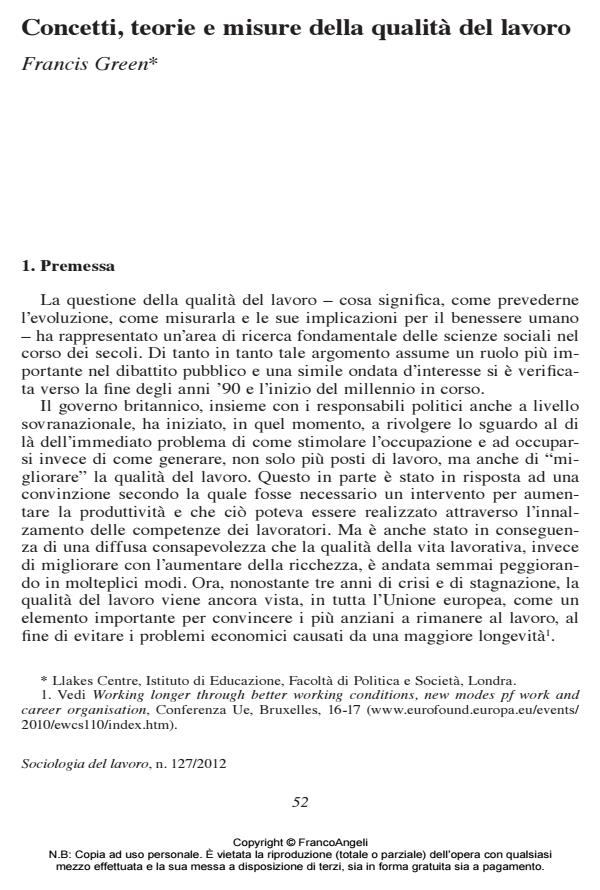Concepts, Theories and Measures of Job Quality
Journal title SOCIOLOGIA DEL LAVORO
Author/s Francis Green
Publishing Year 2012 Issue 2012/127 Language Italian
Pages 18 P. 52-69 File size 335 KB
DOI 10.3280/SL2012-127005
DOI is like a bar code for intellectual property: to have more infomation
click here
Below, you can see the article first page
If you want to buy this article in PDF format, you can do it, following the instructions to buy download credits

FrancoAngeli is member of Publishers International Linking Association, Inc (PILA), a not-for-profit association which run the CrossRef service enabling links to and from online scholarly content.
Job quality is defined as features of jobs that contribute to meeting workers’ needs. The main domains are pay, intrinsic job quality, the future prospects of jobs, and features of jobs that are conducive to a good work-life balance. Opportunities for organisational participation are also regarded by some as fundamental to job quality, while others see such participation as the means to obtaining better job quality. Theories and empirical evidence about the evolution of job quality in Britain are reviewed, including pay, polarisation of employment and work intensification. A mixed picture is revealed, with some aspects deteriorating and others improving. The association of these trends with regulation is discussed. Methodological issues for the measurement of job quality other than wages are considered. It is argued that a vector of job quality indices should be constructed using surveys, but that it would be misleading to aggregate these into a single index of job quality.
Keywords: Quality of work, job quality indices, organisational participation, work-life balance, job satisfaction, labour market
Francis Green, Concetti, teorie e misure della qualità del lavoro in "SOCIOLOGIA DEL LAVORO " 127/2012, pp 52-69, DOI: 10.3280/SL2012-127005